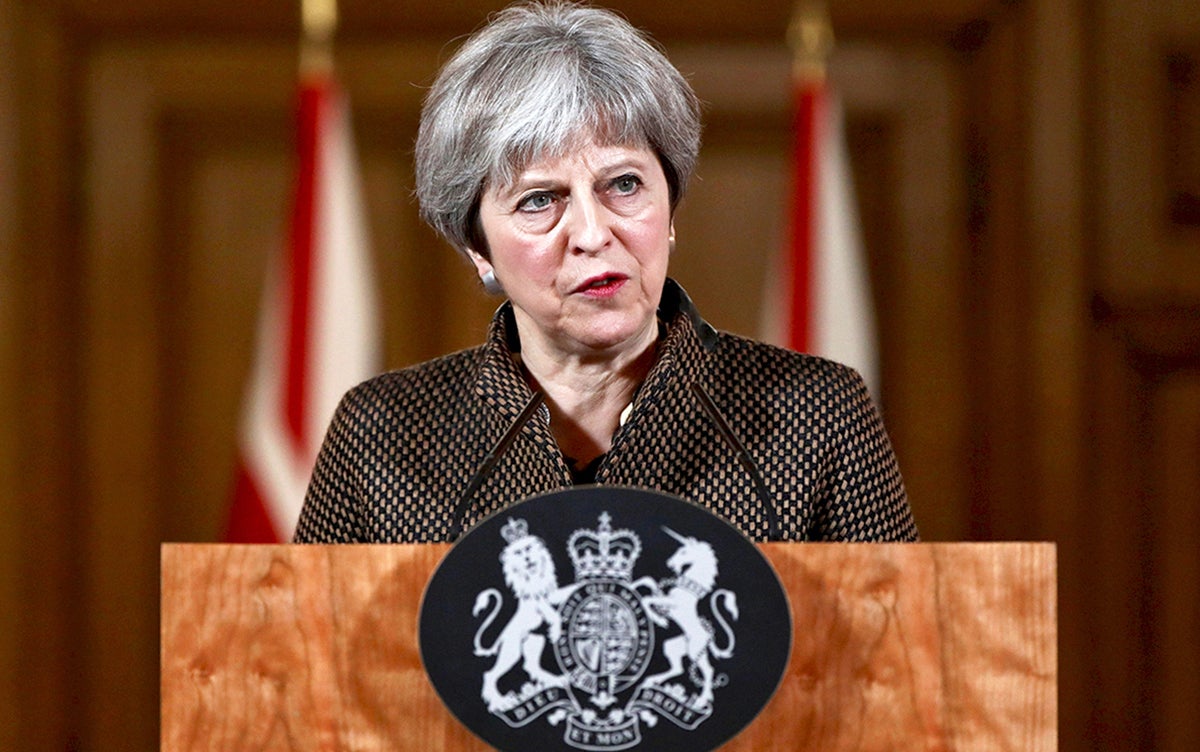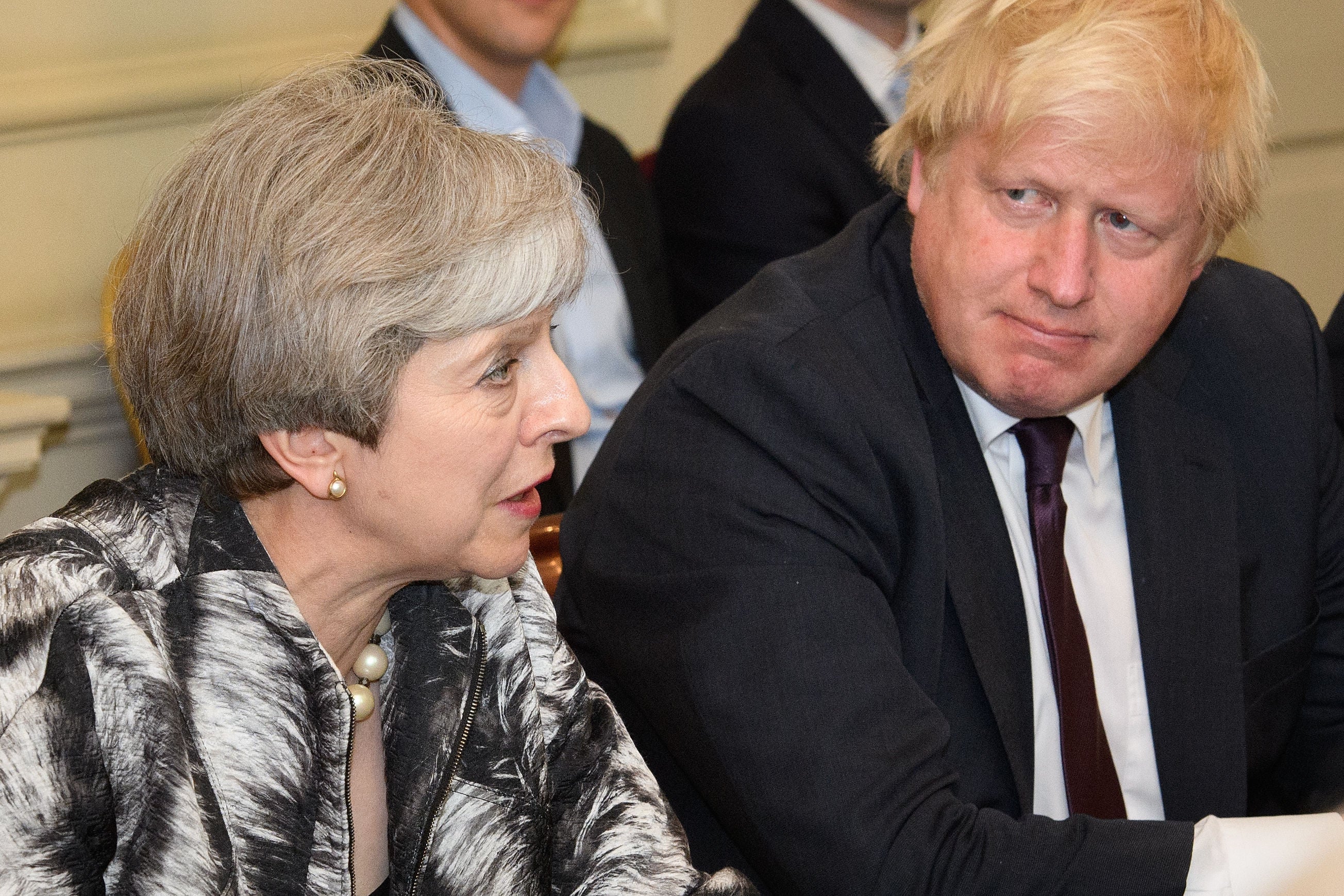Theresa May to stand down as MP at general election
Former PM calls it a ‘challenging decision’ to leave her Maidenhead seat
Former prime minister Theresa May has announced she will step down as an MP in the next general election, ending her 27-year stint in parliament.
In a statement to a local newspaper in her Maidenhead constituency, Ms May admitted it was a “challenging decision” to step away from politics.
She told the Maidenhead Advertiser she had taken the decision to “focus on causes close to her heart including her work on the Global Commission on Modern Slavery and Human Trafficking”.
She said: “It has been an honour and a privilege to serve everyone in the Maidenhead constituency as the member of parliament for the last 27 years.
“Being an MP is about service to one’s constituents and I have always done my best to ensure that I respond to the needs of local people and the local area.”

Ms May was first elected as the MP for Maidenhead in 1997, eventually going on to serve as the second ever female prime minister from July 2016 to July 2019.
She earned a reputation for her tough stance on immigration and law and order issues during her time as home secretary under then prime minister David Cameron between 2010 and 2016 before succeeding him in the top role.
But her term in Downing Street was cut short after a turbulent three years where she was dubbed the ‘Maybot’ for her robotic interview style, and her tenure was dominated by wrangling over Brexit negotiations.
In the snap election of 2017 she lost her parliamentary majority, yet she clung on at No 10 courtesy of a pact with the Democratic Unionist Party (DUP).

Ms May formally stepped down as prime minister on 24 July 2019 after Boris Johnson won the Conservative Party leadership contest and succeeded her as the country’s prime minister.
Writing in The Times, Ms May said she would “miss parliament ... I won’t, however, miss the way the political debate has polarised over the years.”
She added: “Over my time in parliament, I have seen a coarsening of our debates and less respect for others’ views. Democracy depends on us being able to debate key issues that affect people’s everyday lives seriously and respectfully.
“It needs politicians who put those they represent first and themselves second. It needs MPs who are there to serve.”
Rishi Sunak posted on Twitter /X, calling her: “A relentless campaigner, a fiercely loyal MP to the people of Maidenhead, and Britain’s second female prime minister. Theresa May defines what it means to be a public servant. I have no doubt Theresa will continue to make a positive impact on public life.”
A spokesperson for the PM said she would not get into “speculation” about whether Ms May would be given a seat in the House of Lords.
David Cameron, Ms May’s predecessor, described the former PM as “the most dedicated of public servants”.
Posting on Twitter/X, Lord Cameron said: “I wish Theresa May well as she stands down. As well as serving as my home secretary and then as PM, she did much to help modernise the Conservative Party and promote women in public life.”
He added: “She has been the most dedicated of public servants. The House of Commons will miss her.”
In her statement on Friday, Ms May said: “As I pass the baton on I will be working with my successor to secure a Conservative victory in Maidenhead.
“I remain committed to supporting Rishi Sunak and the government and believe that the Conservatives can win the election.
“I would like to thank all those who chose me to represent them as their member of parliament.”
Labour MP Jess Phillips said that there was “something very classy” about the former prime minister announcing her resignation “in the Maidenhead Advertiser first”.
She said: “Love her or loathe Theresa May’s politics, she was famed for being a responsive and involved local MP.”
And Sir David Lidington, who served in the cabinet under Ms May, said she will be a “loss to the House of Commons. She's been somebody who, in my experience, has been more, has had her politics more rooted in a genuine ethic of public service than many, many others that I have worked with over the years,” he told Times Radio.
He added: “She's played a really constructive and active role as a very senior backbencher for the PM. But I think the decision to stand down, it is not too surprising [given] that she has been a member of parliament since 1997. That's a good long stint.”
Ms May has long campaigned on modern slavery and human trafficking, and launched her global commission on the issues in October, backed by the UK and Bahrain governments.
In her statement, she said the causes close to her heart were taking an increasing amount of her time.
“Because of this, after much careful thought and consideration, I have realised that, looking ahead, I would no longer be able to do my job as an MP in the way I believe is right and my constituents deserve,” she said.
Energy minister Andrew Bowie has posted a tribute to Ms May, saying: “I’m so sorry to see the woman I was proud to call boss and remain proud to call a friend standing down from parliament. It will leave the House of Commons a lesser place.
“Her dedication to her constituency, her country and her party is unmatched. Thank you Theresa.”
Exchequer secretary Gareth Davies said: “I’m personally sad to see her go. I think it’s very good when former leaders stay in the House of Commons and contribute to debates and she’s certainly brought a lot to debate since she stood down and so I’m very sad personally but wish her well and I think she’s justified in moving on after 27 years.”
Shadow women and equalities minister Anneliese Dodds said Theresa May’s decision to stand down was further evidence of a lack of confidence in Rishi Sunak.
She told GB News: “This is obviously a very significant decision from Theresa May to stand down at the next election.
“As you said, it is a surprise but of course we’ve heard this from a large number of sitting Conservative MPs. They’ve decided not to stand for the next election, and I think that does reveal that frankly there’s no confidence in Rishi Sunak, nor indeed in the Conservative Party to be a party of government for the future.
“I think this really strengthens those calls for change, those calls for a general election.”
A former minister under Mrs May’s government, Margot James, paid tribute to her former boss and called for her to join the House of Lords.
Ms James called Ms May a “woman of great integrity who has given great service to the country and to Maidenhead” and added: “I hope she takes up a seat in the Lords to continue her excellent work for women and victims of modern slavery.”
Join our commenting forum
Join thought-provoking conversations, follow other Independent readers and see their replies
Comments
Bookmark popover
Removed from bookmarks